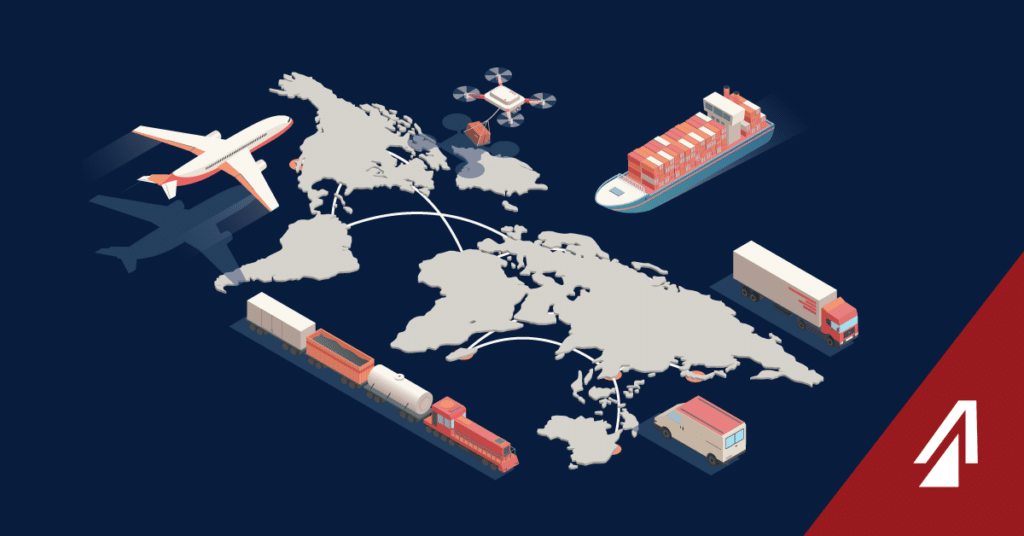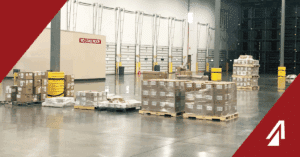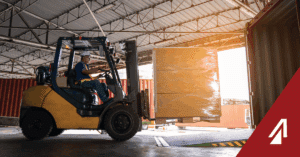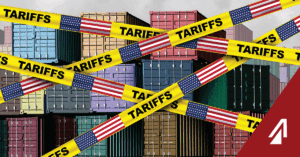In the ever-changing world of international trade, understanding the intricacies of logistics is crucial for any business looking to expand its reach or streamline its international operations. Two terms often explored and considered in discussions about global supply chains are “freight forwarding” and “third-party logistics (3PL).” These service offerings are vital in moving goods internationally but serve different purposes. Let’s explore the distinctions between freight forwarding and 3PL to help you determine what is right for your global supply chain.
An Overview of Freight Forwarding
Freight forwarding refers to third-party logistics solutions that manage and coordinate the movement of goods internationally from the manufacturer or supplier to a market, production plant, or final point of distribution. Freight forwarders act as intermediaries between the shipper and transportation services, including ocean freight, air freight, and trucking.
Key Functions of Freight Forwarders
Freight forwarders provide a broad range of services, from inventory management to logistics planning, advising customers on the best shipping methods, costs, and logistics strategies tailored to their specific needs. Let’s cover just some of the key functions of a freight forwarder. (Learn more about The Role of a Freight Forwarder here).
- Transportation Coordination – Freight forwarders arrange the transportation of goods using various modes, including air, sea, rail, and ground, depending on the most efficient and cost-effective options for shippers.
- Documentation Management – They handle all necessary documentation required for shipping and confirm the data, including bills of lading, customs documentation, insurance forms, and customs declarations.
- Cargo Insurance – Freight forwarders often provide cargo insurance options to protect against loss and damage during transit and handle the claims process on your behalf if an incident occurs.
- Customs Clearance – They assist businesses with the complexities of customs regulations and processes to ensure that shipments comply with all legal requirements and tariffs of a particular country or border crossing.
- Risk Management – Freight forwarders help identify potential issues or risks in the shipping process and work to develop strategies or contingency plans that mitigate these risks proactively.
An Overview of 3PL Services
Third-party logistics (3PL) refers to outsourcing logistics and supply chain operations to a third-party logistics provider, such as warehousing, inventory management, and shipping. They help businesses streamline their logistics by managing the movement and storage of goods from the point of origin to the final customer or destination.
Key Functions of 3PL Providers
A 3PL provider offers end-to-end logistics services that cover nearly every aspect of the supply chain, from receiving and storing inventory to freight management and route planning. Their goal is to optimize supply chain efficiency, reduce costs, and enable businesses to focus on their core operations. Here are a few of the key functions of 3PL providers:
- Comprehensive Logistics Solutions – 3PL providers offer end-to-end logistics solutions, from warehousing and order fulfillment to transportation and distribution.
- Inventory Management – They help businesses manage their inventory more efficiently, optimizing stock levels and reducing carrying costs.
- Technology Integration – Many 3PL providers utilize advanced technology and software to track shipments, manage inventory, and provide real-time data analytics.
- Scalability – 3PL services offer scalability, allowing businesses to adjust their logistics needs based on demand fluctuations without significant capital investment.
- Global Reach – Established 3PL providers have extensive networks and partnerships, enabling them to offer global logistics solutions.
Comparing Freight Forwarding and 3PL Services
While both freight forwarders and 3PL providers facilitate the movement of goods, they differ significantly in their scope and functions.
- Service Scope – 3PL providers offer a broad range of logistics functions, including warehousing, inventory management, order fulfillment, and transportation management. Freight Forwarding, however, primarily focuses on the transportation and logistics of goods internationally from one point to another, including customs clearance and documentation.
- Logistics Expertise – Freight forwarders specialize in international shipping and the complexities involved in customs regulations, documentation, and transportation logistics. 3PL Providers, on the other hand, offer a more comprehensive logistics solution that often integrates technology and inventory management, among other offerings, into their services.
- Cost Structure – Freight forwarders typically charge for transportation and associated services, which may include handling fees and insurance. The pricing structure of a 3PL provider is more complex, often including fees based on volume, storage space, and additional services provided.
- Technology Integration – While some freight forwarders may use technology for tracking shipments, it is usually less comprehensive than what 3PL providers offer. Many 3PL services utilize advanced logistics software and technology for real-time tracking, inventory management, and data analysis to provide clients with insights into their supply chain.
Choosing What’s Right for Your Supply Chain
Choosing between freight forwarding and 3PL services depends on your business’s specific needs and objectives. Here are some factors to consider:
- Volume of Goods – If your business deals with large volumes of goods and requires logistics support, a 3PL provider may be more appropriate. They manage inventory, warehousing, and transportation all in one package. A freight forwarder may be more suitable for lower volumes that need straightforward shipping solutions across international borders.
- Complexity of Supply Chain – A freight forwarder’s expertise in navigating customs and regulations can be invaluable if your supply chain involves multiple suppliers, complex logistics, and international shipping. Conversely, if you require a more integrated approach, including inventory management and order fulfillment, a 3PL provider might be a better choice.
- Growth Plans – Consider your needs going forward. If your business goal includes growth plans and scaling your business, a 3PL provider can offer the flexibility and resources needed to adjust logistics operations accordingly. For businesses focused on specific shipping routes or modes, freight forwarding can provide tailored solutions without the broader commitments of a 3PL.
When to Use a Freight Forwarder
A freight forwarder is a great choice if your primary need is shipping goods internationally, especially if you manage your own inventory or fulfillment in-house. This is particularly true for manufacturers, distributors, and B2B exporters. Ideal uses for a freight forwarder include:
- You want to optimize freight costs on global trade lanes
- You ship large volumes overseas by air or sea
- You need help navigating customs regulations and international compliance
- You already have a warehouse or distribution center
When to Use a 3PL Provider
A 3PL provider is a better choice if you need end-to-end logistics support, not just transportation. 3PL providers enable businesses to outsource their entire supply chain, including warehousing, inventory management, data analytics, and supply chain optimization. Ideal uses for a 3PL provider include:
- You need warehousing and order fulfillment services
- You want to outsource pick, pack, and ship operations
- You require inventory visibility and order management software
- You want a partner who can grow with your business and handle seasonal spikes
Can You Use Both? Yes – and Often, You Should
In many cases, freight forwarders and 3PLs complement each other. You might use a freight forwarder to manage international shipping into a specific region and a 3PL provider to receive and distribute the inventory domestically. For example, you may use a freight forwarder to ship containers from Europe to the U.S., then rely on a 3PL to receive them domestically, store your inventory, and fulfill orders across North America. This hybrid approach gives you the specialized shipping expertise of a freight forwarder and the end-to-end fulfillment support of a 3PL needed to optimize every step of your supply chain.
Both freight forwarding and 3PL services play crucial roles in the global supply chain. In the right hands, logistics becomes a growth driver, not just a cost center. Understanding the differences between freight forwarding and 3PL can help businesses make informed decisions that align with their logistics needs. Whether you choose a freight forwarder for its specialized expertise in international transportation or a 3PL for its comprehensive logistics solutions, the right choice will enhance your supply chain efficiency and contribute to your overall business success. With the right mix of freight and fulfillment expertise, your supply chain can be smarter, faster, and more competitive in the global market.
ProTrans is a leading specialized logistics provider for the most complex, demanding manufacturing customers shipping to, from, and within North America. Experts in optimizing US-Mexico cross-border transportation services, we offer comprehensive end-to-end logistics, including freight consolidation, third-party logistics, and on-demand services. Our group of companies includes TOC Logistics, our international division that provides global freight forwarding with a focus on international industrial shipping to and from North America. Contact our team for a free analysis of your supply chain needs.



